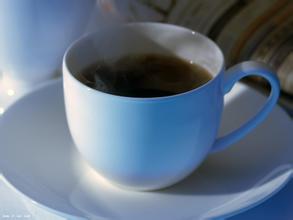Jamaica Atlanta Manor Coffee at High Altitude Flavor Description Taste Variety Treatment Roast Degree
The unique flavor of Blue Mountain Coffee is related to its unique geographical location and climatic conditions. Blue Mountain is located in the coffee belt between 25 degrees north latitude and 25 degrees south latitude, with fertile new volcanic soil, fresh air, no pollution, rainy all the year round and great temperature difference between day and night. Most importantly, every afternoon, clouds cover the top of the mountain, which not only shades the coffee trees naturally, but also brings abundant water vapor, which makes the taste and aroma of Blue Mountain coffee outstanding.
Only coffee grown in the Blue Mountain area above 1800 meters above sea level can be called Blue Mountain Coffee. A coffee enthusiast whom the reporter knew in the United States was more "demanding". He insisted: "the coffee grown at an altitude of 2256 meters is Blue Mountain coffee." Coffee beans grown in the lower mountains of the island of Jamaica can only be named "Jamaican alpine coffee" because of their different qualities. In addition, the same coffee tree species, whether planted in Hawaii, Kenya, Papua New Guinea or anywhere else with a similar climate, cannot produce the flavor of blue mountain coffee beans.
Healthy black coffee
The earliest coffee on the island of Jamaica came from Haiti in Latin America in 1728. By 1790, some coffee farmers among the refugees in exile from Haiti had settled in the Blue Mountains and brought coffee-growing technology here. In 1838, Jamaica abolished slavery and allowed liberated slaves to cultivate their own land. Free slaves moved to the mountains to grow coffee and exported it to England. Coffee has come to be known for its admiration by the British upper class. This kind of coffee is the Blue Mountain coffee that fascinates coffee lovers all over the world today.
Pure Jamaican Blue Mountain Coffee perfectly combines the unique sour, bitter, sweet, mellow and other flavors of coffee to form a strong and attractive elegant flavor, which is unmatched by other coffee. People who love Blue Mountain Coffee say: "it is a 'coffee beauty' that combines all the advantages of good coffee." Jim, general manager of Pitt, which is famous for its coffee and tea business in the United States, said of Blue Mountain Coffee: "it tastes fragrant, smooth and mellow, and it makes me feel as precious as a gem. It is precisely because the taste of Blue Mountain coffee is moderate and perfect, so Blue Mountain coffee is generally drunk in the form of black coffee. "
Traditional production technology
Blue Mountain Coffee can maintain today's top status, but also closely related to the local business policy. In 1932, Jamaica adopted a policy to encourage coffee production to reduce the island's dependence on sugar exports. Unlike most coffee-producing countries, the local government does not plant a large number of high-quality and poor-quality coffee in order to increase output, but to give priority to quality, preferring to sacrifice the output of coffee to ensure the quality of Blue Mountain coffee. Therefore, Jamaica is currently one of the countries with low coffee production in the world. Brazil, the world's largest coffee exporter, produces 30 million bags of coffee a year, while Blue Mountain produces only about 40, 000 bags a year.
In addition, the processing and production of Blue Mountain Coffee is also very elegant. Strict and detailed standards have been established for processing, baking and packaging, and there are regulations on what kind of organic fertilizers are needed during the growth period. All are harvested manually at harvest time. Jamaica is also the last country to still transport coffee in traditional wooden barrels.
Only through this series of stringent standards set by the Jamaican Coffee Industry Authority can coffee obtain a guarantee issued by the government and officially bear the name "Blue Mountain".

Important Notice :
前街咖啡 FrontStreet Coffee has moved to new addredd:
FrontStreet Coffee Address: 315,Donghua East Road,GuangZhou
Tel:020 38364473
- Prev

Description of Coffee Flavor in San Pedro Manor, Puerto Rico baking process by treatment of characteristics of varieties
Puerto Rico, located in the eastern part of the Greater Antilles in the Caribbean Sea, includes Puerto Rico and small islands such as Vieques and Culefra. It is an island with very beautiful scenery. It is bordered by the Atlantic Ocean to the north, the Caribbean Sea to the south, the United States and the British Virgin Islands to the east, and the Mona Strait to the west, bordering the Dominican Republic. Puerto Rico covers an area of 13790 square kilometers
- Next

The coffee flavor of Yinshan Manor in Jamaica, which is full of fruit and sour taste, describes the characteristics of the variety.
Location: central American area: 11100 square kilometers population: 2826000 people official language: English Coffee planting area: 9000 hectares Coffee yield: 27,000 bags of Coffee varieties: Arabica Coffee characteristics: the myth of the coffee world. Its flavor is mild, clean, soft, fruity and sour, and can meet people's various needs. Besides, it's delicious and juicy.
Related
- Does Rose Summer choose Blue, Green or Red? Detailed explanation of Rose Summer Coffee plots and Classification in Panamanian Jade Manor
- What is the difference between the origin, producing area, processing plant, cooperative and manor of coffee beans?
- How fine does the espresso powder fit? how to grind the espresso?
- Sca coffee roasting degree color card coffee roasting degree 8 roasting color values what do you mean?
- The practice of lattes: how to make lattes at home
- Introduction to Indonesian Fine Coffee beans-- Java Coffee producing area of Indonesian Arabica Coffee
- How much will the flavor of light and medium roasted rose summer be expressed? What baking level is rose summer suitable for?
- Introduction to the characteristics of washing, sun-drying or wet-planing coffee commonly used in Mantenin, Indonesia
- Price characteristics of Arabica Coffee Bean Starbucks introduction to Manning Coffee Bean Taste producing area Variety Manor
- What is the authentic Yega flavor? What are the flavor characteristics of the really excellent Yejasuffi coffee beans?

